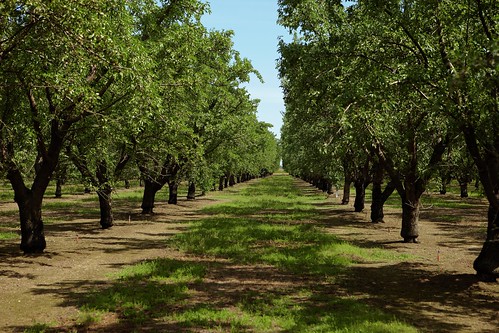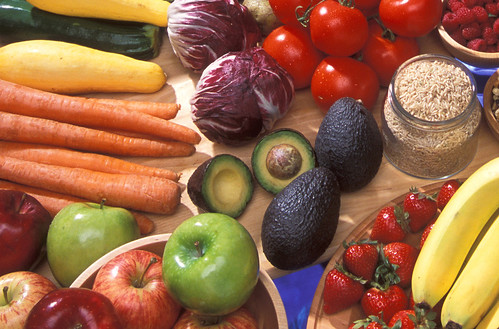
It takes a lot of hard work to make a living out of farming, to build a thriving agricultural business and it takes ingenuity. This is especially true in rural America, where dedicated farmers and ranchers rely on each other and the communities around them to fuel innovation and create opportunity. From nutritional research to competitions that promote sustainability and continued environmental care, ag promotion programs—with oversight from USDA’s Agricultural Marketing Service (AMS)—help American farmers make long-term investments that ensure a better future for everyone.
For more than 30 years, California almond growers have pooled their resources under the Almond Board, focusing on research and techniques to make the most of precious water resources. Efficient water use and irrigation management are vital to the success of California’s Central Valley almond growers, ensuring that consumer demand for almonds can be met sustainably. State-of-the-art farming and production developments over the past two decades have helped farmers reduce the amount of water they use per pound of almonds grown by 33 percent. Key strategies have included the wide adoption of micro-irrigation as well as advances in soil assessment and monitoring.
Innovative use of wood products is beginning to change the face of construction, and USDA is doing its part to support these advancements. A new prize competition was launched earlier this month, challenging developers, institutions, organizations and design teams to demonstrate the architectural, structural and commercial viability of using sustainable wood products in tall-wood construction. USDA is investing up to $1 million in the competition and nonprofit partners—the Softwood Lumber Board and the Binational Softwood Lumber Council—have committed an additional $1 million.

The pork industry continues to support and recognize operations that are innovative and use sustainable practices. Each year, the National Pork Board, along with its co-sponsor, National Hog Farmer magazine, highlights farms that represent environmental stewardship. Most of these stewards employ state-of-the-art technology and new approaches to pig farming, which have benefits for their surrounding communities as well. The stewards are evaluated on manure management systems, water and soil conservation practices, odor-control strategies, farm aesthetics and neighbor relations, as well as wildlife habitat promotion.
“Our environmental stewards clearly understand the role technology plays in a comprehensive approach to raising pigs,” said Lynn Harrison, chair of the selection committee. “It illustrates how bright ideas can become innovative solutions. From relying more on solar power to giving back to their communities, our stewards put their own stamp on raising high-quality pork for customers.”

Rural America also has strong ties to innovative health and nutrition research. The National Mango Board works with nutrition researchers to explore the connection between eating mangos and healthy skin. Preliminary research published by the National Institutes of Health (NIH) indicates that consuming the 20+ vitamins and minerals found in mangos may protect your skin from damage to due to exposure to Ultra Violet B (UVB) radiation.
The Hass Avocado Board also enlists the help of nutrition researchers to study the benefits of consuming avocados. Emerging research suggests that fresh Hass avocados may play a positive role in many areas including heart, eye, cognitive, digestive and cellular health. In particular, the research showed that having avocados with tomato sauce or raw carrots can help the body better use and absorb vitamin A.
USDA is committed to working with ag promotion programs to keep America #AgStrong. By pooling their resources and investing in research through these programs, farmers and ranchers are able to overcome challenges, find new markets for their products and develop innovative, sustainable solutions that bring positive change.

